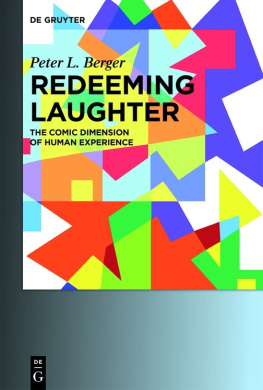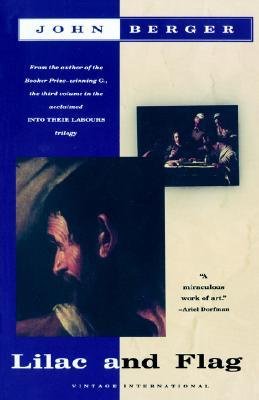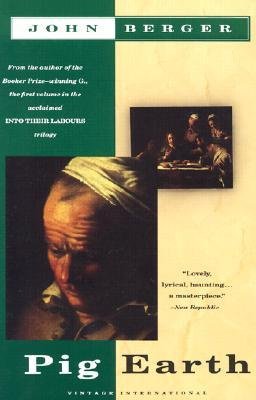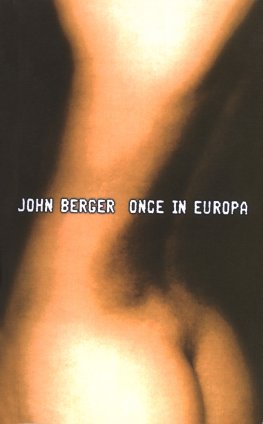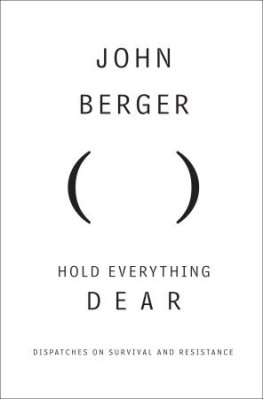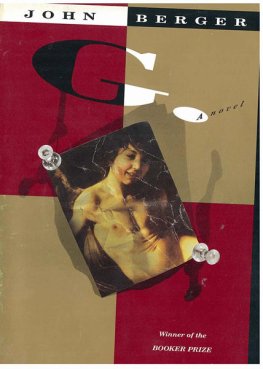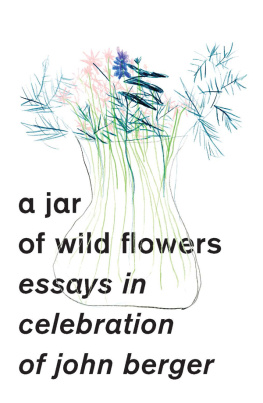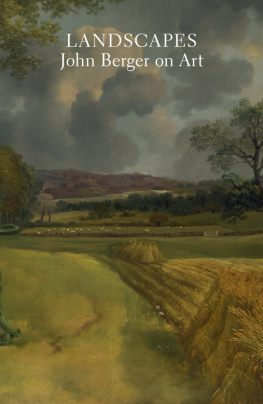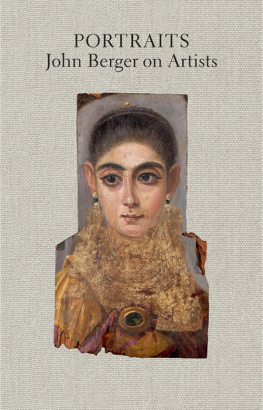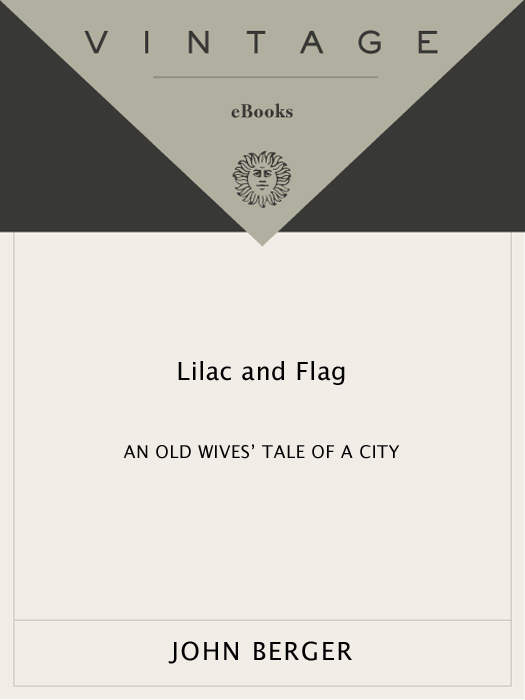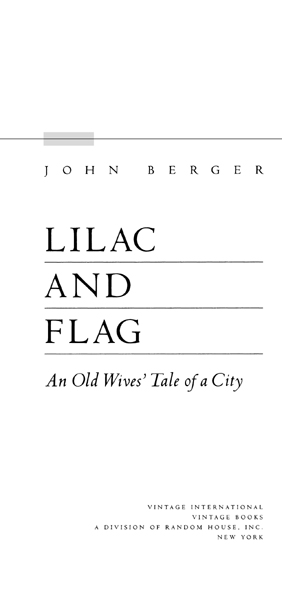John Berger
Lilac and Flag
John Berger was born in London in 1926. He is well known for his novels and stories as well as for his works of nonfiction, including several volumes of art criticism. His first novel, A Painter of Our Time, was published in 1958, and since then his books have included the novel G., which won the Booker Prize in 1972.
With Lilac and Flag (1990), Berger completed his peasant trilogy Into Their Labours, which also includes Pig Earth (1979) and Once in Europa (1987). His six volumes of essays include Keeping a Rendezvous (1991), The Sense of Sight (1985), and Ways of Seeing (1972).
In 1962 Berger left Britain permanently, and he now lives in a small village in the French Alps.

The works of John Berger
PIG EARTH (first book of the
INTO THEIR LABOURS trilogy)
ONCE IN EUROPA (second book of the trilogy)
LILAC AND FLAG (third book of the trilogy)
A PAINTER OF OUR TIME
PERMANENT BED
THE FOOT OF OLIVE
CORKERS FREEDOM
A FORTUNATE MAN
ART AND REVOLUTION
THE MOMENT OF CUBISM AND OTHER ESSAYS
THE LOOK OF THINGS: SELECTED ESSAYS AND ARTICLES
WAYS OF SEEING
ANOTHER WAY OF TELLING
A SEVENTH MAN
G.
ABOUT LOOKING
AND OUR FACES, MY HEART, BRIEF AS PHOTOS
THE SENSE OF SIGHT
THE SUCCESS AND FAILURE OF PICASSO
KEEPING A RENDEZVOUS

VINTAGE INTERNATIONAL EDITION
Copyright 1990 by John Berger
All rights reserved under International and Pan-American Copyright Conventions. Published in the United States by Vintage Books, a division of Random House, Inc., New York, and distributed in Canada by Random House of Canada Limited, Toronto. Originally published in hardcover by Pantheon Books, a division of Random House, Inc., New York, in 1990.
Library of Congress Cataloging-in-Publication Data
Berger, John.
Lilac and flag / John Berger.
p. cm.
eISBN: 978-0-307-79427-7
I. Title.
PR6052.E564L5 1992
823.914dc20 92-50076
v3.1
F OR K ATYA AND O RESTES
Others have laboured and ye are entered
into their labours.
ST JOHN 4-38
Contents
Old Love Poem
The hay
smelt of how
the sky loved the earth.
You were the pain in my ribs
aching
from the carts unloaded.
The dead
were filling a doorway
with the view beyond.
You were the house
the candle under the plum tree
and my eternity.
Birth
THREE BUTTERFLIES RISE from the field like white ash above a fire. Let my dead help me now. One of them reappears and, flying over the tall grass which I will soon have to scythe, alights on a blue flower and opens its wings. On each of her wings the same sign is printed in blackish greythe grey of the first marks if you draw with a burnt stick on paper. I begin to think of Zsuzsaor perhaps it is she who begins to think of me. A second butterfly comes down and covers the first; the second one is Sucus. The two of them, wings spread, quiver like four pages of a book open in the wind. Suddenly Sucus flies off. Let my dead help me now. Zsuzsa shuts her wings, slips off the scabious flower, and joins the other two butterflies to fly away over the tall grass which I will soon have to scythe. I have loved them all.
Food
ZSUZSA LIVED IN a house on the hill behind the tanneries. They were tall, open buildings without walls and on each floor the hides were hung to dry in the salt wind that came off the sea. The hides, bulging a little in the wind, looked like giant bats suspended upside down and asleep. For years there had been talk of pulling down the old tanneries and building new ones elsewhere, further away from the coast. The plan had not been carried out because of a warning from the city health department. If the old sheds were destroyed, so the health department threatened, the million rats who lived and bred there would quit the hill and invade Troy. It was in these tanneries that Marius worked long ago, when many men still came back alive from the city.
On Rat Hill, Zsuzsas mothers house was blue. Uncle Dima, who sometimes worked in the docks, had painted it with stolen paint, manufactured specially for swimming pools. A bright turquoise blue.
All we need now is the diving board! said Zsuzsa after he had finished painting the house.
A week later Uncle Dima was arrested when he and two of his friends tried to break the till of an all-night garage on the Trojan ring road.
Zsuzsas father had disappeared five years earlier, without a trace. On the roads between cities people often vanish. Here in the village men leave their wives and their children, but in the end theres always news of them. Two years after Zsuzsas father had vanished without a trace, her mother came home one Sunday morning with Uncle Dima. Meet my fresh hide, she announced to her son, Naisi, and her two daughters.
The Blue House had two rooms. Compared to some of the neighbours shacks, it was a solid home. Its walls were made of concrete blocks, and its roof of tarpaulin, stolen from the American navy, was well tarred and held down by wooden batons.
Unlike her younger sister, Zsuzsa was skinny. Not just her wrists and ankles, but her shoulders, her chest, and hips.
She could slip between a door and its hinges, her mother complained.
People say bodies reveal character. They are wrong. Bodies are dealt out to us like cards. Character begins with how you play what you get. At nineteen Zsuzsa looked like a boy. Yet she was already more feminine than any wet nurse. This is what made her a law unto herself.
The first time she met Sucus was outside St. Josephs. St. Josephs was not a church but a prison, a large one which held two thousand prisoners. She had been to visit the uncle.
How do you feel, Uncle Dima?
How in Gods name do you think?
Bad?
Couldnt be worse.
Its sunny today.
Eleven fucking months. What have you brought me?
Meat pies, a pineapple, smoked cods liver.






